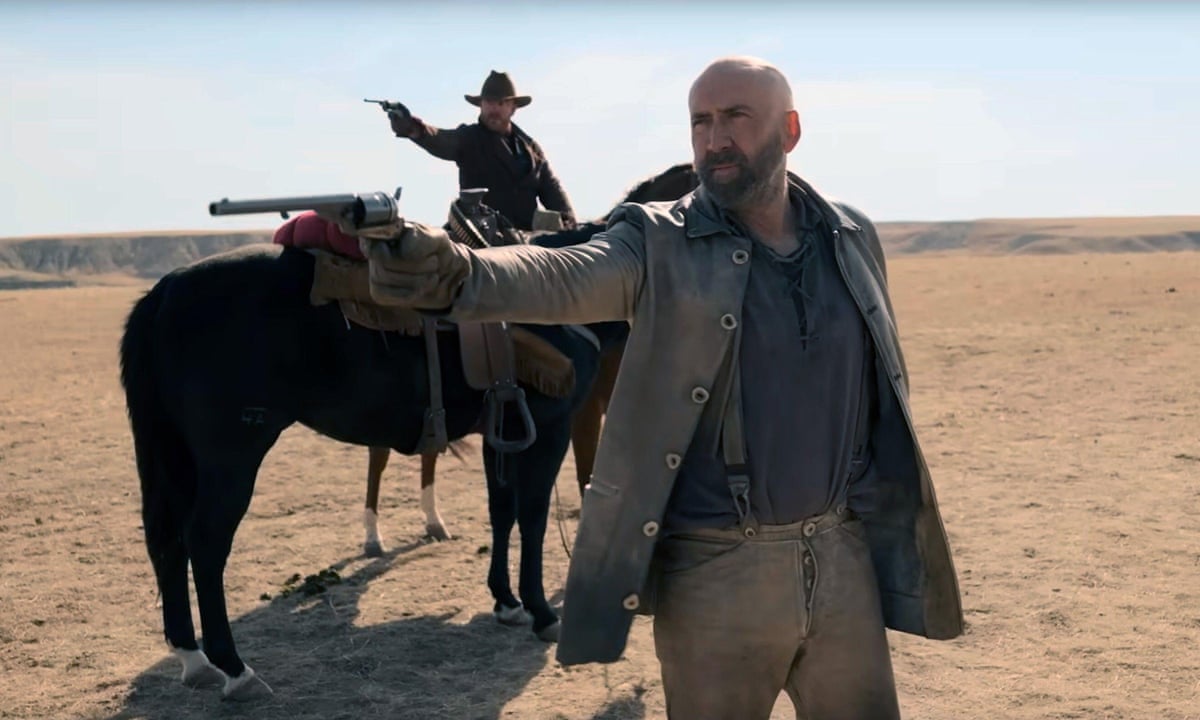Butcher’s Crossing (2022): A Brutal Meditation on Man, Nature, and Obsession
Butcher’s Crossing (2022), directed by Gabe Polsky and based on the novel by John Williams, is a bleak and haunting Western drama that strips away the romance of the American frontier to reveal the raw, unflinching brutality of nature—and human ambition. Featuring Nicolas Cage in a quiet but intense role, the film explores themes of survival, madness, environmental devastation, and the search for meaning in a world that offers little redemption.
Set in the 1870s, the story follows Will Andrews (Fred Hechinger), a young Harvard dropout yearning for a more authentic life beyond the constraints of Eastern society. He travels west to Butcher’s Crossing, a small frontier town in Colorado, where he encounters Miller (Nicolas Cage), a seasoned and obsessive buffalo hunter. Fascinated by Miller's stories and promise of a great untouched herd deep in the Colorado mountains, Will agrees to finance an ambitious expedition.

Together with two other hardened men, the group ventures into the wilderness in search of glory and fortune. What begins as a dream of adventure soon descends into a slow, psychological nightmare. Driven by greed and pride, Miller becomes consumed with slaughtering every last buffalo in the hidden valley they discover, far beyond what they can carry or sell. The killing continues even as the weather turns against them and supplies dwindle. Their isolation grows, and with it, madness creeps in.
Unlike traditional Westerns that glorify conquest and expansion, Butcher’s Crossing serves as a critique of Manifest Destiny and unchecked exploitation. The film uses the buffalo hunt as a brutal metaphor for industrial greed—how the desire to dominate nature leads not only to ecological ruin, but also personal collapse. The slow decay of the men’s mental and physical states mirrors the decimation of the buffalo around them. Nature, in this film, is not a backdrop—it is an overwhelming, indifferent force.

Nicolas Cage delivers a subdued yet terrifying performance as Miller, a man obsessed with domination, blinded by pride, and haunted by past failures. His quiet intensity builds slowly, erupting not through loud declarations, but through stubborn persistence and emotional detachment. Fred Hechinger, as Will, plays the idealistic observer, whose transformation over the course of the film—from naive dreamer to hollow survivor—is subtle but devastating.
Visually, the film is both beautiful and harrowing. The sweeping mountain landscapes are shot with grandeur, capturing both the majesty and menace of the untamed wilderness. The cinematography highlights the contrast between human ambition and the vast indifference of nature. There are moments of silence and stillness that are more powerful than any action sequence.
Butcher’s Crossing is not a film for everyone. Its pacing is deliberate, its tone grim, and its characters morally complex. But for those willing to journey into its harsh landscape, it offers a deeply philosophical experience—a story not just of survival, but of consequences. In the end, the West is not conquered; it is endured, and it changes all who enter it.

